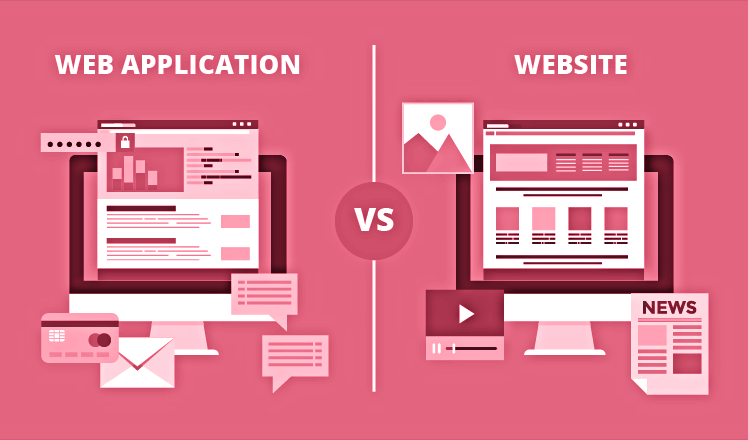As a content manager at Evolve web apps in Bournemouth, I often come across clients who use the terms "website" and "web app" interchangeably. While both are accessible through a web browser and appear similar to the end-user, there are significant differences between the two. In this blog post, I'll explain the difference in great detail to help you understand which one suits your business needs better.
What is a Website?
A website is a collection of web pages that are designed to be viewed on a web browser. It's like a digital brochure for your business, providing information about your products, services, and company. Websites are built using HTML, CSS, and JavaScript, and they can be static or dynamic. Static websites display the same information to all users and are ideal for small businesses that need a simple online presence. On the other hand, dynamic websites use server-side scripting to create a personalised experience for each user. For instance, an e-commerce website uses dynamic pages to display product listings, shopping carts, and checkout processes.
What is a Web App?
A web app, on the other hand, is an interactive software application that runs on a web server and can be accessed through a web browser. Web apps use technologies like HTML, CSS, JavaScript, and server-side scripting languages like PHP, Python, or Ruby. They offer a more complex user experience than websites and often involve databases, APIs, and other web services. Web apps can be simple, like a calculator or a to-do list, or complex, like a social media platform or a project management tool. They are designed to perform specific functions and are often tailored to meet specific business needs.
Difference between a Website and a Web App
The primary difference between a website and a web app is the level of interactivity and functionality they provide. While websites provide static content, web apps offer a dynamic and interactive experience. Web apps offer the ability to perform complex functions like data analysis, online payments, user account management, and more. In contrast, websites offer basic information about your business and are less interactive.
Another significant difference between websites and web apps is the development process. Websites are relatively easy to build and maintain and can be created using pre-built templates or website builders. On the other hand, web apps require more complex development, including the integration of databases, APIs, and web services. Web apps need to be regularly updated to ensure they remain secure, bug-free, and optimised for performance.
When to Use a Website vs. a Web App
The choice between a website and a web app largely depends on your business needs. If you need a simple online presence to showcase your business, provide basic information, and offer some contact details, a website is the best choice. On the other hand, if you want to offer complex functionalities, data management, or automation, a web app is the way to go. Web apps are ideal for businesses that need to manage large amounts of data, run online transactions, or offer personalised user experiences.
Conclusion
In summary, a website and a web app may seem similar to the end-user, but they serve different purposes. Websites are ideal for businesses that need a simple online presence, while web apps offer more complex functionalities and interactivity. At Evolve web apps in Bournemouth, we offer custom web development services that cater to your specific business needs. Whether you need a website, web app, or both, our team of experts will help you build a solution that fits your needs.


